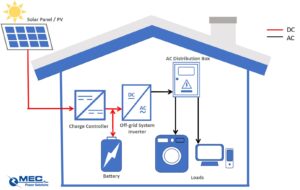Best Battery Storage System
A battery storage system is a type of energy storage power station. It uses a number of batteries to store electrical energy. The batteries are charged and discharged at set intervals. The system can help the grid keep a constant flow of electricity. It has several advantages over conventional power stations, including its low maintenance and low cost.
A battery energy storage system can store large amounts of energy in a relatively short period of time. It is highly efficient and can be used for a variety of different purposes. It is usually rechargeable and requires no maintenance. It can be installed on a vehicle or in a home. A battery energy storage system can be used to store electricity in emergency situations.
A BESS can replace natural gas or diesel generators and can restart power systems after a blackout. It has a fast response time, making it a viable alternative for power restoration in disaster situations. Moreover, a BESS can start power systems even without external electricity networks. This means that it can save precious time and energy.
A battery storage system must comply with the requirements of Reference Joint Appendix JA12, which governs the operation of its batteries. It is important to meet these requirements because it allows residents to take advantage of variable electricity costs. A static battery in backup mode, on the other hand, has little value for the homeowner, the grid, or the environment. For a battery system to be compliant with the requirements of the JA12, it must have a control algorithm built in.

Battery Storage System
There are several companies that make battery energy storage systems. Tesla, for example, makes the Powerwall, which uses rechargeable lithium-ion batteries. Another company, NEC, manufactures battery energy storage systems for homes and business applications, including standalone and hybrid solutions. Hitachi, meanwhile, produces modular battery energy storage systems that integrate solar energy sources and wind generators.
Modern battery energy storage systems include a built-in inverter and a computerized control system. They are easy to install and maintain. They are also weatherproof and are safe for people. They are also highly versatile, and can be used in many applications. Residential and commercial uses include peak shaving, off-grid homes, and more.
When deciding to use a battery storage system, make sure you check that it meets all the requirements of the California Energy Commission. For example, a battery storage system may be required to use the same charge and discharge strategies as a PV array. It is also necessary to make sure that the battery storage system is programmed to use one of the strategies listed in Section 7.5.2 above.
The advantages of a battery energy storage system are numerous. It can be used to increase variable renewable energy, improve electricity supply reliability, and provide a solution for black starts and peak shaving. In addition to these benefits, modern battery technology has become affordable, so it can be used in residential and commercial settings.

